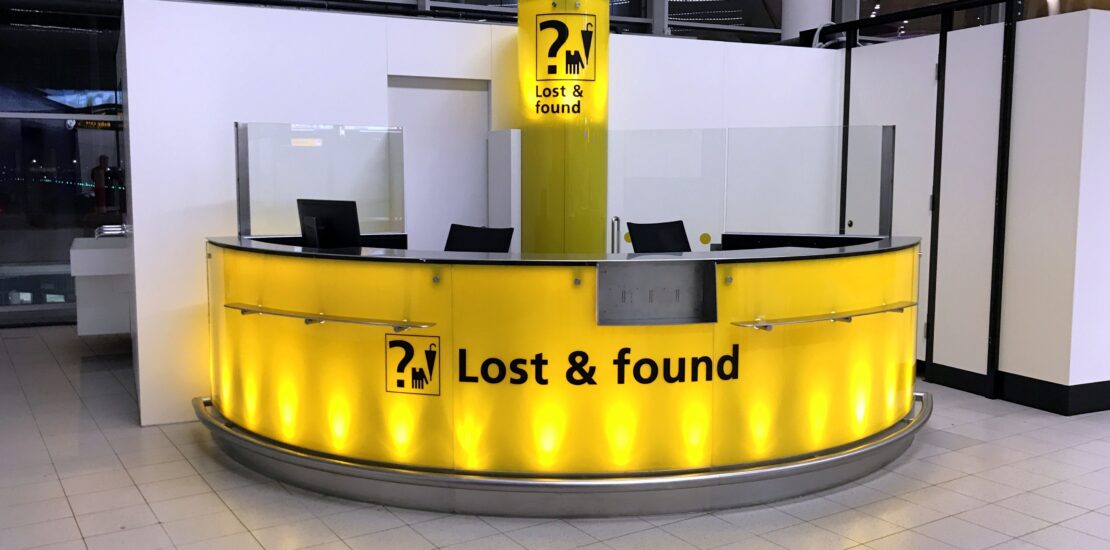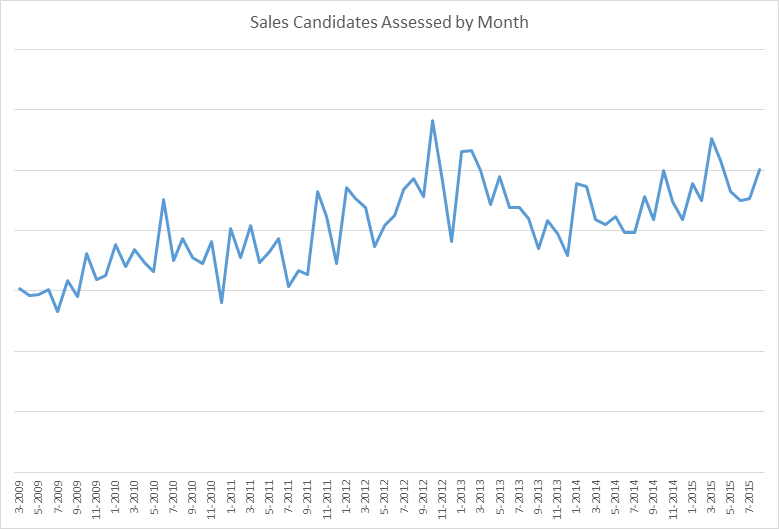sales assessment test
-
Found! The Caliper vs OMG Comparison: Which Sales Candidate Assessment is More Predictive?
- December 1, 2020
- Posted by: Dave Kurlan
- Category: Understanding the Sales Force

Almost nine years in the making, this article compares OMG with Caliper and I did update it so that the information on both assessments is current.
I compared two assessments for the same candidate: one from Objective Management Group (OMG) and one from Caliper. Not being one to pass up opportunities like this, I conducted another comparison where OMG recommended this person for the role and Caliper did not.
-
Did You Know That There is a Season for Hiring Salespeople?
- September 17, 2015
- Posted by: Dave Kurlan
- Category: Understanding the Sales Force

Did you know that when it comes to hiring salespeople, there are also seasonal trends we know to be true ?
-
Top 10 Reasons Why Your Great New Salesperson Might Fail
- June 30, 2014
- Posted by: Dave Kurlan
- Category: Understanding the Sales Force
When a great salesperson is recommended by Objective Management Group’s (OMG) Sales Candidate Assessment, and this star has a great track record, and great references, should we expect this person to succeed?
Most executives do.
But even though salespeople will tell you that “If you can sell, you can sell anything”, that statement is only true some of the time. Here are some examples of salespeople who are successful in one environment, but usually fail in another:
-
What Google Might Know about Hiring Salespeople
- June 22, 2013
- Posted by: Dave Kurlan
- Category: Understanding the Sales Force
The NY Times posted a story on June 20 about Google, their recruiting efforts, and big data. The story really doesn’t reveal that much, but there is an interesting quote (that I will get to shortly) that is relevant to hiring salespeople. When we help companies get the sales selection piece right, there are several components that we tweak. We help them get the following things right:
-
Sales Assessment Findings – Interview is Another Preview of Performance
- October 3, 2012
- Posted by: Dave Kurlan
- Category: Understanding the Sales Force
when his clients didn’t care for a candidate who was recommended by our Sales Candidate Assessment, he was able to correlate his client’s perception to a single finding: Won’t Develop Relationships Quickly.
-
The Importance of Positive Sales Attitude – A Tribute to a Friend
- October 1, 2012
- Posted by: Dave Kurlan
- Category: Understanding the Sales Force
It just reinforced my belief that when you have salespeople who aren’t positive or kind, who complain or make excuses, or who lower your energy level or that of others, it is crucial that you replace them. It is addition by subtraction and you must be more concerned with the energy level than with replacing the production of those who are terminated.
-
10 Lessons From the Sales Candidate Who Smelled Like He Peed on Himself
- July 3, 2009
- Posted by: Dave Kurlan
- Category: Understanding the Sales Force
It was quite the claim. I remember telling my client that the next candidate we were to interview was the best sounding candidate I had ever spoken with on the phone. Robert, the sales manager, went to the lobby to get the candidate and returned, an ashen look on his face. Ray, the candidate, followed Robert into the conference room and suddenly, I had the same ashen look on my face. It seemed that the best candidate I had ever spoken with by phone was, well, a bum!
-
The Secret – The Ancient Scrolls and its Impact on the Sales Force
- March 24, 2009
- Posted by: Dave Kurlan
- Category: Understanding the Sales Force
Since this book is not the Kabbalah itself, rather a Cliff Notes version, it tends to read more like a self-help book. It is far more powerful than a self-help book though as it points to a number of rules that will cause a transformation in one’s life.
Seven of the desired behaviors are consistent with the philosophies in Baseline Selling – How to Become a Sales Superstar by Using What You Already Know about the Game of Baseball as well as Objective Management Group’s Sales Assessments:
-
Former IBM Pro Lashes Out Over Sales Assessment
- February 17, 2009
- Posted by: Dave Kurlan
- Category: Understanding the Sales Force
A CEO of a fairly large-sized but under-performing OEM asked us to evaluate his sales force. One of the three regional managers, who assessed as poorly as any regional manager could, called to complain about his results. In addition to calling me a toad, Bob said that in the eighties he used to sell and manage at IBM and he led the top performing team. He finished by letting me know that we didn’t know what we were talking about and, by the way, he would be picking me up at the airport for the kick-off of their national training initiative.
-
Will Gifts Get Prospects to Return Calls from your Salespeople?
- February 13, 2009
- Posted by: Dave Kurlan
- Category: Understanding the Sales Force
A fruit basket arrived this morning. My first reaction was, “who would want to send me a fruit basket?” It turned out that a salesperson sent it, hoping to get me on the phone. He had already left two voice mail messages and stopped by on one other occasion.

